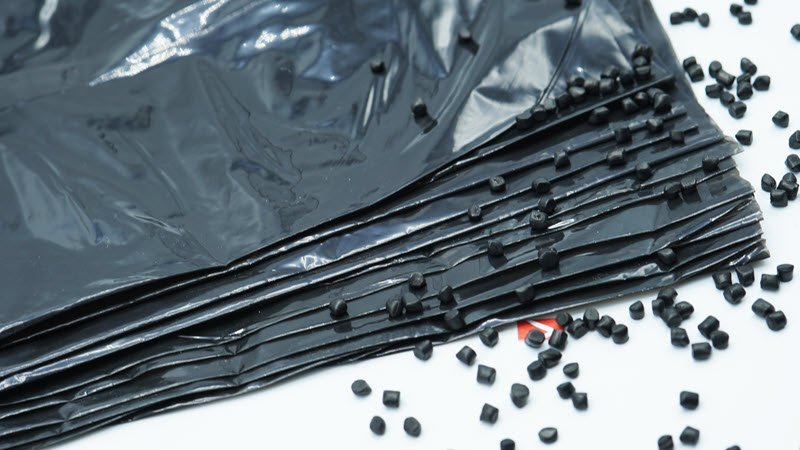Plastics have revolutionized industries due to their versatility, cost-effectiveness, and lightweight nature. However, achieving optimal mechanical properties such as strength, durability, and resistance to environmental factors requires reinforcement. Carbon black plays a crucial role in modifying plastic properties, offering improved performance for numerous applications. This article explores how carbon black influences plastic materials, its applications, and its significance in industrial manufacturing.
1. Importance of Carbon Black in Plastics
Carbon black is a crucial additive in plastics, significantly enhancing mechanical properties such as durability and environmental resistance. Its ability to provide UV protection, and improve conductivity makes it indispensable in various industries. As technology advances, the demand for high-performance plastic materials incorporating carbon black will continue to grow, driving innovation and sustainability in manufacturing. Additionally, ongoing research is focusing on developing eco-friendly carbon black solutions to reduce environmental impact while maintaining its essential benefits in plastic applications.
Carbon black is a fine black powder derived from the incomplete combustion of hydrocarbons. It serves as a key additive in plastics, enhancing multiple mechanical and physical properties. Its primary functions include:
- UV Protection: It acts as an effective UV stabilizer, preventing degradation from prolonged sunlight exposure.
- Electrical Conductivity: Certain grades of carbon black impart conductivity, making plastics suitable for electronic applications.
- Thermal Stability: By improving heat resistance, carbon black extends the lifespan of plastic components in high-temperature environments.
- Chemical Resistance: Carbon black enhances plastic resistance to various chemicals, oils, and solvents, which is crucial for industrial applications.
- Coloration: Beyond mechanical benefits, carbon black is widely used as a pigment, providing deep black coloration and improving aesthetic qualities.
Due to these benefits, carbon black is widely used in the production of high-performance plastic materials across various industries.
Read more: Choosing black carbon for black masterbatch
Understand carbon black in black masterbatch

Carbon black has become an indispensable ingredient in many industries
2.How Carbon Black Influences Plastic Properties
The addition of carbon black significantly enhances multiple mechanical and physical properties of plastic materials. It strengthens polymer chains, improving tensile and impact resistance, which extends the material’s lifespan—an essential feature for industrial containers and automotive components. In high-friction environments, carbon black boosts wear and abrasion resistance, making it ideal for automotive tires, conveyor belts, and protective casings. Its UV-absorbing properties protect plastics from degradation, ensuring durability in outdoor applications like agricultural films, building materials, and protective coatings.
.jpg)
Carbon black significantly improves many mechanical and physical properties of plastic materials
Additionally, carbon black influences electrical and thermal conductivity, with specific formulations supporting applications in electronics, anti-static packaging, and electromagnetic shielding. Plastics incorporating carbon black also gain superior chemical resistance to oils, solvents, and industrial chemicals, making them more durable in harsh environments. Furthermore, carbon black improves processability by enhancing melt flow properties, ensuring consistent quality during manufacturing and end-use applications while reducing defects and improving efficiency.
3.Applications of Carbon Black in Plastics
Carbon black is widely utilized across various plastic-based industries due to its ability to enhance mechanical properties. In the automotive sector, it reinforces bumpers, dashboards, and under-the-hood components, improving durability, UV resistance, and vibration damping for enhanced passenger comfort. It also strengthens tires, extending their lifespan and boosting fuel efficiency while contributing to lightweight vehicle designs by replacing heavier metal parts.
In the packaging industry, carbon black improves the strength and chemical resistance of plastic films and containers, protects contents from UV degradation, and enhances barrier properties to extend shelf life. Additionally, its deep black pigmentation enables high-quality printing and labeling.
In the electrical and electronics sector, carbon black is essential for cables, conductive plastics, and shielding materials, providing static dissipation and electromagnetic interference (EMI) shielding. It is also used in anti-static packaging and high-performance plastic components for consumer electronics like smartphones and laptops.
In construction, carbon black enhances the longevity and environmental resistance of pipes, roofing materials, and insulation products while reinforcing plastic composites for durable and lightweight building structures. Flooring materials, wall panels, and other construction elements also benefit from its impact resistance and load-bearing capabilities.
In consumer goods, carbon black improves the impact resistance of sports equipment, appliances, and high-performance tools, ensuring longer product lifespans and enhanced aesthetics with deep black shades that resist fading. It also contributes to sustainability by improving the recyclability of plastic products.
In agriculture and infrastructure, carbon black enhances UV stability in agricultural films and greenhouse covers, strengthens geotextiles and plastic reinforcements in infrastructure projects, and improves the durability of irrigation systems, water storage solutions, fencing materials, and protective agricultural sheets, ensuring long-lasting performance even in harsh conditions.
.png)
Many applications that carbon black brings in the plastics industry
4.Conclusion
Carbon black is a crucial additive in plastics, significantly enhancing mechanical properties such as strength, durability, and environmental resistance. Its ability to reinforce plastics, provide UV protection, and improve conductivity makes it indispensable in various industries. As technology advances, the demand for high-performance plastic materials incorporating carbon black will continue to grow, driving innovation and sustainability in manufacturing. Additionally, ongoing research is focusing on developing eco-friendly carbon black solutions to reduce environmental impact while maintaining its essential benefits in plastic applications.
.png)
Carbon black is an indispensable additive in plastic
5. About EuroPlas
EuroPlas is a leading supplier of plastic additives, black masterbatches, and high-quality masterbatches, providing innovative solutions for industries worldwide. With a commitment to excellence, EuroPlas ensures that its products, including Filler Masterbatch, Color Masterbatch, Plastic Additives, Engineering Plastics Compounds, Bioplastic Compounds, and Bio Filler, help businesses optimize their plastic materials. These solutions not only enhance product performance and durability but also provide significant cost-saving benefits by reducing the use of expensive materials like metals. Contact us today to learn more about carbon black in plastics and other creative solutions for sustainable packaging. Explore our blog to gain in-depth insights into best practices in the industry and discover how EuroPlas can help you optimize your manufacturing process while prioritizing environmental protection.